 Belief in God is common and tied to mental health and illness in the general population.
Belief in God is common and tied to mental health and illness in the general population.
Researchers at McLean Hospital/Harvard Medical School, in Belmont, Massachusetts, studied its relevance to psychiatric patients. Continue reading Belief in God and psychiatric treatment outcomes →
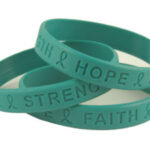 It’s reported that 55% of patients with ovarian cancer acknowledge a fear of dying, and 32% experience loss of hope in their fight against this illness.
It’s reported that 55% of patients with ovarian cancer acknowledge a fear of dying, and 32% experience loss of hope in their fight against this illness.
Researchers at Harvard Medical School, in Boston, examined CAM and its influence on hopelessness in these patients. Continue reading Hopelessness and the value of CAM in ovarian cancer →
 It’s reported that the personal importance of religion or spirituality is associated with a lower risk for major depression.
It’s reported that the personal importance of religion or spirituality is associated with a lower risk for major depression.
Researchers at Columbia University, in New York City, examined this association in adults. Continue reading Religion lowers the risk of depression →
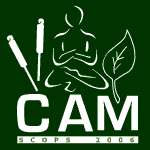 Standard therapies are of limited value for obsessive compulsive disorder (OCD).
Standard therapies are of limited value for obsessive compulsive disorder (OCD).
Researchers at Swinburne University of Technology, in Australia, reviewed the value of CAM, self-help techniques, and lifestyle interventions. Continue reading CAM treatment of obsessive compulsive disorder →
 Researchers in Massachusetts and Virginia updated changes in this coping tool between 2002 and 2007. Continue reading Trends in the use of prayer for health concerns →
Researchers in Massachusetts and Virginia updated changes in this coping tool between 2002 and 2007. Continue reading Trends in the use of prayer for health concerns →
 Researchers at Columbia University, in New York, previously reported that the personal importance of religion or spirituality was associated with a lower risk for major depression.
Researchers at Columbia University, in New York, previously reported that the personal importance of religion or spirituality was associated with a lower risk for major depression.
Now, they report the importance of religion among the offspring of the participants in that earlier study. Continue reading Religion and major depression in adults →
 Patients with advanced cancer frequently use CAM.
Patients with advanced cancer frequently use CAM.
Researchers at the University of Toronto, in Canada, examined the use of CAM and implications for patient care. Continue reading Spirituality as a guide to care in advanced cancer →
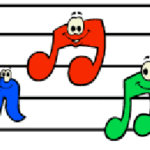 Having cancer may result in emotional, physical, and social suffering. Music interventions have been used to alleviate symptoms and treatment side effects in cancer patients.
Having cancer may result in emotional, physical, and social suffering. Music interventions have been used to alleviate symptoms and treatment side effects in cancer patients.
The authors of this Cochrane review report the response to music among cancer patients. Continue reading Benefits of music therapy for cancer patients →
 Researchers in the US compared the effects of a nondenominational spiritual retreat on depression and well-being following acute coronary syndrome — chest pain and other symptoms when the heart doesn’t get enough blood. Continue reading Spiritual retreat for depression in patients with heart disease →
Researchers in the US compared the effects of a nondenominational spiritual retreat on depression and well-being following acute coronary syndrome — chest pain and other symptoms when the heart doesn’t get enough blood. Continue reading Spiritual retreat for depression in patients with heart disease →
 I’ve largely ignored these studies in the past, but perhaps it’s worth a second look.
I’ve largely ignored these studies in the past, but perhaps it’s worth a second look.
To start, this 1993 study by Dr. David Eisenberg, who is now the director of Complementary and Integrative Medical Therapies at Harvard University, is considered a landmark in the field of “unconventional medicine.” Continue reading CAM in the US: Patterns of use →
 There’s concern that the use of complementary and alternative medications (CAM) may replace recommended preventive health practices.
There’s concern that the use of complementary and alternative medications (CAM) may replace recommended preventive health practices.
Researchers at Penn State College of Medicine, Milton S. Hershey Medical Center, in Pennsylvania conducted a survey to learn more. Continue reading Are those using CAM less likely to be immunized? →
 A key outcome of early cancer drug studies is the toxicity of a new experimental drug. The use of CAM in patients with advanced cancer might make it difficult to make this determination.
A key outcome of early cancer drug studies is the toxicity of a new experimental drug. The use of CAM in patients with advanced cancer might make it difficult to make this determination.
Researchers at The University of Texas MD Anderson Cancer Center, in Houston, studied the prevalence of CAM use in their patients participating in experimental cancer drug treatment studies. Continue reading CAM use among cancer patients during drug trials →
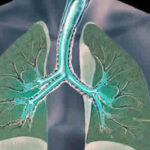 During the National Conference in Pediatric Psychology, researchers at the University of Cincinnati reported that urban adolescents with asthma might experience worse outcomes when not using spiritual coping. Continue reading Relaxation and prayer among people with asthma →
During the National Conference in Pediatric Psychology, researchers at the University of Cincinnati reported that urban adolescents with asthma might experience worse outcomes when not using spiritual coping. Continue reading Relaxation and prayer among people with asthma →
 Joshua Knabb at Philhaven Hospital, in Mount Gretna, Pennsylvania tells us centering prayer overlaps with mindfulness-based cognitive therapy, which makes it a suitable treatment alternative for many Christians in remission from depression.
Joshua Knabb at Philhaven Hospital, in Mount Gretna, Pennsylvania tells us centering prayer overlaps with mindfulness-based cognitive therapy, which makes it a suitable treatment alternative for many Christians in remission from depression.
Here’s his rationale. Continue reading Prayer as an alternative to mindfulness-based cognitive therapy →
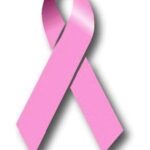 Some breast cancer patients reject standard treatment, but data on outcomes for those choosing CAM as primary treatment are lacking.
Some breast cancer patients reject standard treatment, but data on outcomes for those choosing CAM as primary treatment are lacking.
Researchers at the Legacy Health System, Cancer Services, in Portland, Oregon, estimated 10-year survival statistics. Continue reading Survival with alternative therapy for breast cancer →
 Researchers at Barts and the London School of Medicine and Dentistry, in the UK compared the relationship between religious faith and controversial decisions during care of dying patients. Continue reading Effect of religious faith on decisions by doctor providing end-of-life care →
Researchers at Barts and the London School of Medicine and Dentistry, in the UK compared the relationship between religious faith and controversial decisions during care of dying patients. Continue reading Effect of religious faith on decisions by doctor providing end-of-life care →
 “When people feel that they have a serious need for healing, they are willing to try almost anything,” say researchers at Indiana University Bloomington.
“When people feel that they have a serious need for healing, they are willing to try almost anything,” say researchers at Indiana University Bloomington.
Anchored by this skeptical point of view, these researchers studied the relationship between response to prayer and the proximity to the person being prayed for. Continue reading Does it matter where you pray? →
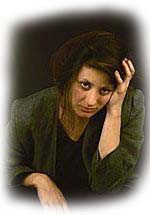 Researchers from Western Psychiatric Institute and Clinic, in Pittsburgh, Pennsylvania studied this association in depressed older adults in mental health settings. Continue reading Effect of religion on depression and hopelessness →
Researchers from Western Psychiatric Institute and Clinic, in Pittsburgh, Pennsylvania studied this association in depressed older adults in mental health settings. Continue reading Effect of religion on depression and hopelessness →
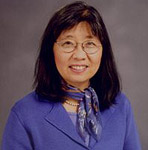 Dr. Elaine Yuen is chaplain in the health care professionals program and research assistant professor in the Department of Health Policy at Thomas Jefferson University in Philadelphia.
Dr. Elaine Yuen is chaplain in the health care professionals program and research assistant professor in the Department of Health Policy at Thomas Jefferson University in Philadelphia.
In an editorial published in the American Journal of Medical Quality she states, “Spiritual care is integral to the science and art of healing, and therefore a critical component in the quality of care.”
She distinguishes between religion and spirituality, and (refreshingly) finds commonality as well.
Continue reading Spirituality and religion in healthcare: Finding common ground →
 The National Center for Complementary and Alternative Medicine (NCCAM) reports that approximately 38% of adults and 12% of children use some form of CAM.
The National Center for Complementary and Alternative Medicine (NCCAM) reports that approximately 38% of adults and 12% of children use some form of CAM.
But this doesn’t include the use of spirituality or religion. Continue reading Spirituality in contemporary culture →
Complementary and Alternative Medicine: Fair, Balanced, and to the Point
 Belief in God is common and tied to mental health and illness in the general population.
Belief in God is common and tied to mental health and illness in the general population.







 Researchers from Western Psychiatric Institute and Clinic, in Pittsburgh, Pennsylvania
Researchers from Western Psychiatric Institute and Clinic, in Pittsburgh, Pennsylvania  Dr. Elaine Yuen is
Dr. Elaine Yuen is  The National Center for Complementary and Alternative Medicine (NCCAM)
The National Center for Complementary and Alternative Medicine (NCCAM)